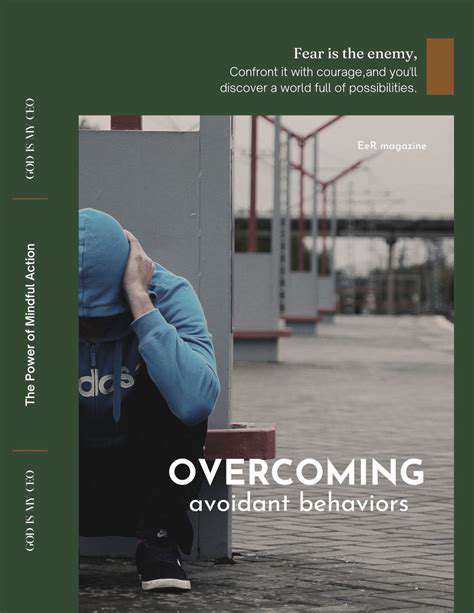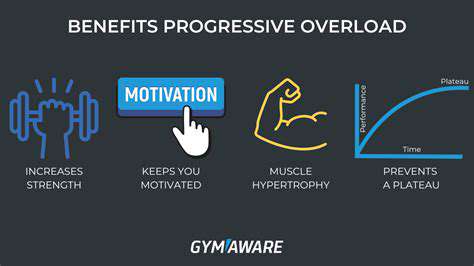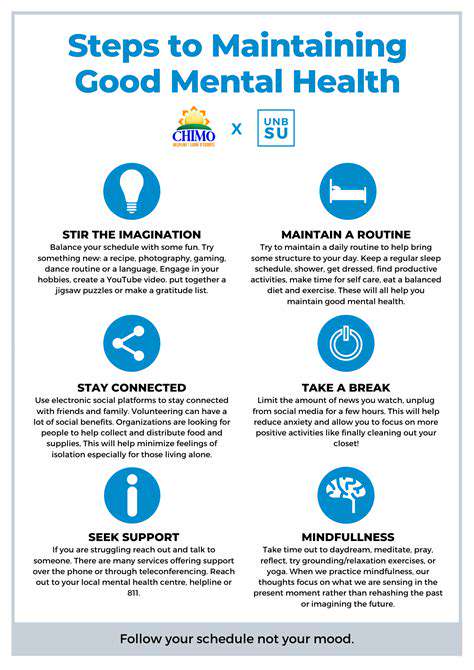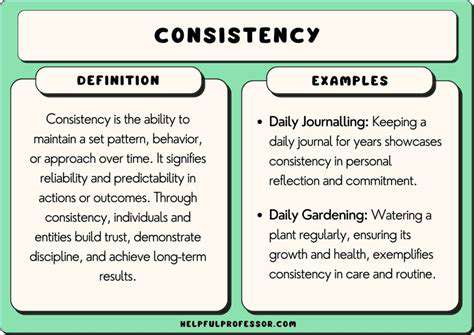Guide to Managing Eczema and Skin Conditions
Understanding Triggers and Exacerbating Factors

Understanding Trigger Identification
Pinpointing triggers remains fundamental for effectively controlling and reducing the impact of flare-ups. A trigger refers to any element or occurrence that starts or intensifies a particular condition. Grasping these triggers empowers people to create proactive plans to dodge or lessen exposure, resulting in enhanced health results and an improved lifestyle. Spotting triggers marks a critical milestone in the self-care journey.
This approach requires attentive monitoring and thoughtful consideration of personal encounters. Maintaining a thorough journal proves extremely useful for detecting repeating trends and uncovering possible triggers. Such documentation assists in recording symptoms, actions, and surrounding aspects that might connect with worsening episodes. Precise record-keeping forms the foundation for comprehending the exact elements affecting your situation.
Categories of Potential Triggers
Triggers may emerge from diverse origins, incorporating environmental aspects such as allergens, weather variations, and atmospheric conditions. Isolating these external influences becomes necessary for crafting customized prevention tactics. Nutritional components can equally play a substantial part, with specific edibles or ingredients possibly worsening symptoms.
Psychological and emotional elements might also serve as catalysts, including tension, nervousness, or major life transitions. Acknowledging these mental triggers proves vital for establishing coping methods and anxiety-reducing practices.
Lifestyle Factors and Triggers
Daily habits can profoundly affect vulnerability to symptom escalation. For instance, insufficient rest, unhealthy eating, physical inactivity, or excessive consumption of alcohol or tobacco might all lead to heightened sensitivity to flare-ups.
Sustaining wholesome and well-rounded routines, incorporating consistent physical activity, proper nourishment, and adequate sleep, remains imperative for decreasing the likelihood of worsening episodes and maintaining general health.
Recognizing and Avoiding Environmental Triggers
External triggers, including allergens, contaminants, or weather shifts, can dramatically influence the intensity of symptom flare-ups. Detecting and steering clear of these catalysts might prove decisive in preventing or lessening these occurrences. Comprehending the particular environmental components that aggravate your condition stands as the cornerstone of successful control.
Developing Coping Mechanisms for Emotional Triggers
Psychological triggers, such as pressure, worry, or significant life alterations, frequently result in symptom intensification. Creating efficient coping techniques, like stress-management methods, calming activities, or obtaining assistance from counselors or peer groups, becomes essential for handling these catalysts. Establishing beneficial coping approaches represents a crucial element in managing symptom escalation.
The Importance of Professional Guidance
Obtaining expert advice from medical practitioners remains vital for accurate trigger recognition and formulation of personalized control methods. Healthcare specialists can offer invaluable perspectives regarding the specific triggers affecting your condition and suggest customized solutions to reduce their impact. Consulting with a healthcare provider proves indispensable for creating a tailored management strategy.
Effective Management Strategies and Treatments
Understanding Eczema
Eczema, a persistent inflammatory skin disorder, impacts countless individuals globally, causing notable discomfort and affecting everyday activities. It manifests through parched, irritated skin, frequently accompanied by redness, fissures, and occasionally weeping or crust formation. Understanding the catalysts and variations of eczema proves essential for proper control and therapy.
Distinct eczema types exhibit differing symptoms and may demand varied management approaches. For example, atopic dermatitis, a prevalent eczema form, often links with allergies and other sensitivities, while dyshidrotic eczema features tiny blisters on hands and feet.
Identifying Triggers
Numerous elements can provoke eczema outbreaks. Recognizing these catalysts constitutes a crucial phase in handling the condition. Frequent triggers incorporate stress, particular fabrics, abrasive cleansers, and environmental factors like climate fluctuations and moisture levels. Allergens including pollen, dust mites, and animal hair might also contribute substantially.
Maintaining a comprehensive log of your eczema episodes and documenting potential triggers assists in recognizing patterns and devising avoidance techniques.
Lifestyle Modifications
Implementing specific lifestyle adjustments can markedly enhance eczema control. These incorporate using mild, scent-free cleansers and hydrating products. Preserving a regular moisturizing regimen, particularly after washing, proves critical for maintaining skin hydration and preventing dryness. Steering clear of harsh chemicals and irritants in skincare items also matters.
Topical Treatments
Topical anti-inflammatory creams are frequently recommended to diminish swelling and itching. These topical applications come in various potencies, with more concentrated versions reserved for severe instances. Following prescribed usage guidelines and preventing overapplication remains vital to avoid skin thinning and other adverse effects.
Alternative topical solutions, like moisturizers with ceramides, humectants, or emollients, can aid in preserving skin moisture and barrier integrity, alleviating eczema manifestations.
Dietary Considerations
While no particular diet has demonstrated definitive eczema cures, some people discover that specific foods can intensify their symptoms. Keeping a food journal to isolate potential triggers serves as a beneficial tactic. Avoiding recognized allergens and common irritants might reduce outbreaks.
Seeking Professional Help
Managing eczema successfully often demands specialized knowledge from dermatologists or other medical experts. They can provide accurate diagnoses, suggest customized treatment protocols, and track progress. Timely intervention and continuous professional support can dramatically enhance life quality for eczema sufferers.
Consulting skin specialists or allergy experts assists in identifying particular triggers and developing individualized management plans addressing personal requirements and concerns.

Seeking Support and Building a Support System

Seeking Assistance for a Challenging Situation
Confronting difficult circumstances often feels daunting, and seeking assistance during such periods is entirely reasonable. Connecting with others offers essential viewpoints and community connection, enabling more effective navigation through challenges. This support framework might include reliable friends and relatives or extend to professional advisors or assistance networks, depending on the situation's nature.
Locating resources and support channels represents an important initial move when addressing substantial personal or professional obstacles. Remembering that you're not isolated and that dedicated individuals and groups exist to provide help remains significant.
Building a Robust Support Network
Establishing a resilient support structure proves essential for managing life's complexities. Cultivating connections with companions, relatives, and guides can supply emotional strength and practical aid during trying periods. Creating this network involves actively interacting with others, promoting transparent dialogue, and displaying compassion and comprehension.
Understanding the Importance of Self-Care
Self-preservation isn't indulgent; it's mandatory for sustaining emotional and psychological health. Allocating time for revitalizing activities that nurture your mental and physical state becomes particularly important when encountering difficulties. Techniques like awareness exercises, contemplation, or merely spending time outdoors can substantially decrease tension and boost general wellness.
Identifying and Addressing Potential Barriers
Recognizing possible obstacles to obtaining support matters. Sensations of humiliation, awkwardness, or apprehension about criticism might occasionally hinder people from requesting assistance. Admitting and conquering these barriers forms a crucial stage in developing a supportive atmosphere.
Tackling these challenges necessitates introspection and dedication to placing your welfare first. It's vital to recall that seeking help demonstrates courage, not frailty, and that connecting with others frequently yields helpful resolutions and restored optimism.
Utilizing Available Resources
Numerous resources exist for those requiring support, spanning from local community hubs and social assistance organizations to digital platforms and support communities. These resources can supply practical advice, emotional reinforcement, and links to additional help.
Seeking Professional Guidance
When facing more intricate or persistent challenges, obtaining expert advice from therapists or counselors can prove immensely beneficial. These specialists possess specific training and experience in aiding individuals through diverse issues. Their knowledge can deliver valuable understanding and tactics for surmounting difficulties.
Building Resilience and Fostering Hope
Developing resilience constitutes an ongoing endeavor involving the creation of coping strategies and nurturing constructive thinking. Encouraging hope and positive outlooks, even during demanding situations, can substantially aid in conquering hardships. Acquiring these fundamental qualities prepares individuals to approach future challenges with increased assurance and resolve. This process requires dedication to personal growth and an active problem-solving approach.
Read more about Guide to Managing Eczema and Skin Conditions
Hot Recommendations
-
*Guide to Managing Gout Through Diet
-
*Best Habits for Financial Well being
-
*How to Build a Routine for Better Mental Health
-
*How to Eat Healthy on a Budget [Tips & Meal Ideas]
-
*Guide to Practicing Self Acceptance
-
*How to Incorporate More Movement Into Your Day
-
*Guide to Managing Chronic Pain Naturally
-
*Guide to Building a Reading Habit for Well being
-
*Top 5 Weight Loss Supplements That Actually Work
-
*Best Exercises for Postpartum Recovery [Beyond Abdominal Work]



![Essential Health Screenings for Women [By Age]](/static/images/26/2025-05/ImportantConsiderationsAcrossAllAges.jpg)






